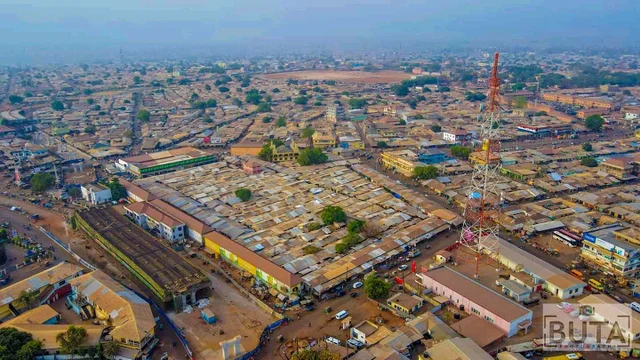- …over 80% of properties not insured
Information gathered by the B&FT from some insurance companies and brokers show that more than 80 percent of commercial buildings have not been insured; thereby contravening the new law from the regulator and putting tenants’ life at risk.
The National Insurance Commission (NIC) and Ghana Insurers Association on August 1, 2022 started the implementation of compulsory insurance policy on commercial buildings, both the completed and those under construction. This is in line with the requirement under Insurance Law, 2006, Act 742.
Under the law, every commercial building shall be insured against hazards of collapse, fire, earthquake, storm and flood, as well as the legal liabilities of an owner or occupier of premises in respect of loss of or damage to property, bodily injury or death suffered by any user of the premises and third parties.
However, checks by the B&FT’s reporter in Tamale show that most commercial buildings including hostels, restaurants, hotels, market stores and rented apartments across the metropolis are not insured, even though some have fire certificates.
This essentially means that tenants of such buildings are at huge risk of losing it all, should any unfortunate incident occur; as they will receive no form of compensation whatsoever.
Insurance underwriter at the Tamale branch of Hollard Insurance, Ernest Manu, partly attributed blame of the situation to lack of education and awareness by most property owners. He further underscored the need for tenants to insist on insurance before renting any commercial building, as this is for their own good.
“It poses a risk to the tenants as well as those around who suffer when any incidence occurs, because the public liability on insurance is to the affected persons around the incidence where it occurred. Insuring private and commercial buildings saves the owner from spending extra on the structure if there is any damage. If the property is insured with the 3rd party within the premises of the facility where the incident occurred, the insurance company takes care of the victims around the building,” he said.
Commenting on whether the cost associated with insuring could be the main discouraging factor for property owners insuring their buildings, Mr. Manu said the amount required is negligible compared to the value of the property, as it would cost just GH¢2,500 to insure a property valued at GH¢500,000.
Mr. Manu further said government can also play a key role in pushing the agenda by making it a condition for compensation of victims in market places who suffer loss due to fire or some other disaster, natural or otherwise.
“Instead of government waiting for misfortune to happen before supporting the victims, there is a need to design policies which require that before one can secure a store or building for any commercial activity, the person must have insurance for the goods or office equipment – while owners of the infrastructure must also insure the building before renting it out.
“This would become a requirement for tenants to secure insurance packages for their goods or businesses. It also goes a long way to save government spending in case of any fire outbreak,” he said.
He further highlighted the role financial institutions can play in this regard, saying they should also make it a condition for properties that are used as collateral for loans.
He said Hollard Insurance, in collaboration with the NIC and other stakeholders, has been embarking on campaigns to educate clients and the public on the need to insure their properties to reduce the risk of losing everything in case of any unforeseen event.










